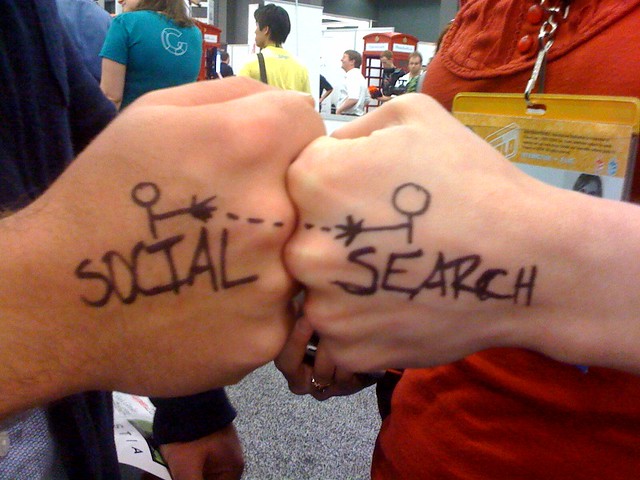It appears Google is using social content that is displayed on a given web page as snippet text in the search engine results pages (SERPS) for the listing devoted to that web page.
I’ve searched extensively for anyone who has encountered the same issue to no avail, so I’m sharing what I’ve discovered. Unfortunately, I cannot share the site for which I’ve observed this phenomenon but I’ll do my best to describe the issue as clearly as I can.
When performing a brand search in Google (this does not apply to Bing or Yahoo!), I noticed that the normal snippet text taken from the META DESCRIPTION tag of this brand’s home page had been replaced with the text of a Tweet mentioning the brand.
The brand was using a service that pulls social content from across the web and writes the content to the brand page as HTML rather than using something like Javascript to display that content. The social content was the only on-page text on the page in question, with the rest of the content consisting of graphics.
The page in question does employ TITLE and META DESCRIPTION tags and the brand name is cited within each.
It appears the snippet text changes based on when Google last crawled the page. Google crawls the site approximately every 24 hours. I’ve seen several instances of Tweet content appearing as snippet text as well as blog content.
The application that publishes the social content to the brand’s page, pulls in mostly tweets because that’s where the majority of the social content comes from, but it also pulls in news and blog content.
There don’t appear to be any social factors determining whether one tweet is displayed in favor of another; the Twitter account for one tweet that was displayed had less than 25 followers, for example.
It appears that Google is notices the presence of social content on the page and therefore bypasses the META DESCRIPTION content (which includes the brand’s name) in favor of a Twitter or blog citation.
The problem is, the service that pulls in the social content and publishes it to the page is automated and occasionally puts social content on the page that contain the brand name but is not about the brand, it’s about something entirely different. It is a false positive.
Conversely, the service may publish a tweet that is directly about the brand but looks odd and/or inappropriate when displayed out of context in the SERPS.
What social content gets displayed is merely through chance based on what Google grabs a the time it crawls the page.
This behavior by Google would seem to be a further indication of the importance the search engine put on social indicators as to the popularity of content. It would also seem to indicate that Google treats the integration of social content with websites at least somewhat favorably.
But this also highlights some potential pitfalls to website owners who want to incorporate online conversations into their sites.
I’ve started an experiment to see if I can recreate this on my daviderickson.com domain by including a Twitter widget of my favorited tweets on the home page. I’ll favorite a tweet that includes my name and see if it shows up as snippet text for a search for “David Erickson.” If it doesn’t work, I’ll try another method that doesn’t use Javascript to display content in order to eliminate Javascript issues from the equation.
It would be nice if Google gave us a modicum of control over what and how that content was used in search results. It could be as simple as honoring a NOSOC meta tag much as Google currently honors the NOODP meta tag, directing it to ignore Open Directory Project descriptions for SERPS snippet text.
Have you encountered the same issue? Is there another explanation for what I”m seeing? Please leave your thoughts in the comments.
The e-Strategy Academy covers all aspects of digital marketing including search optimization & marketing, email marketing, social media marketing, video marketing, mobile marketing & public relations.
